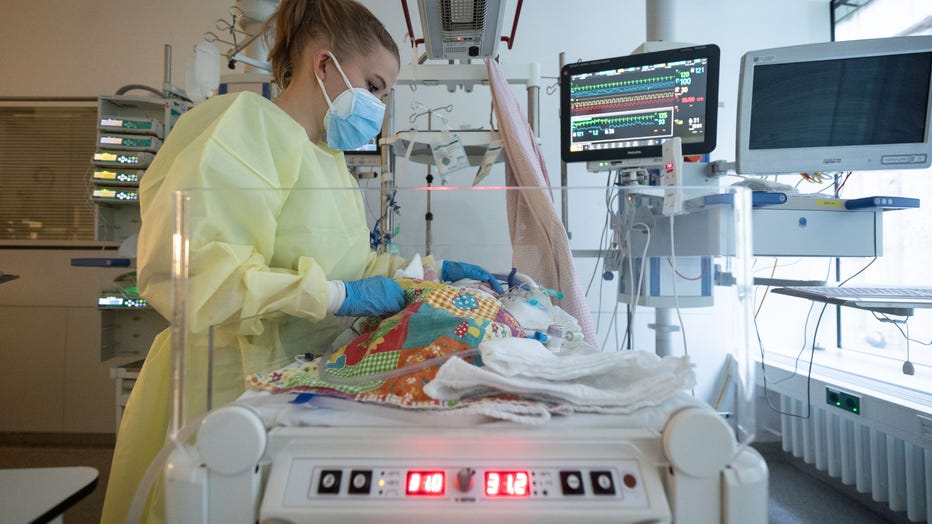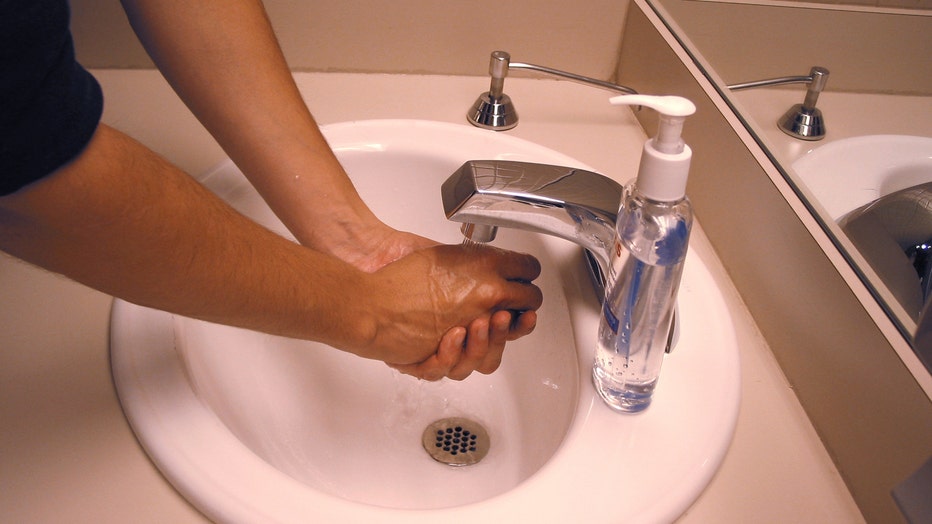RSV cases surging in children as virus spreads earlier, faster this year
Doctors warn parents about RSV, respiratory viruses spreading earlier than usual in children
Minnesota doctors are warning parents that respiratory viruses are spreading earlier in the year than normal, and they can be life-threatening. Doctors expect to see a lot of sick children in the winter, but it's only October and the symptoms are already here.
A common seasonal virus that can cause serious illness in infants is spreading among children earlier and faster this year: Cases of respiratory syncytial virus, better known as RSV, are on the rise, doctors warn.
"It’s a virus that causes typically cold-like symptoms in children and adults," explained Dr. Kimberly Giuliano with the Cleveland Clinic. "But in younger children, it can cause much more significant congestion and cough, high fevers, sometimes breathing and feeding difficulties and irritabilities."
According to the U.S. Centers for Disease Control and Prevention, most people recover in a week or two, but the virus can be more serious for infants and older adults.
Typically, infants are exposed to RSV during the first year of life, often when older siblings become infected in school and bring the virus home, Dr. Larry Kociolek, an infectious disease specialist with Chicago’s Lurie Children’s Hospital, told the Associated Press. But, he added, ’’there were a lot of kids and babies who were not exposed to RSV in winter of 2020 and winter of 2021. That just leaves a much larger proportion of susceptible infants."
What is RSV?
RSV is a common virus that typically causes mild, cold-like symptoms, but for infants, it’s the leading cause of hospitalizations in the U.S., according to the Journal of Infectious Diseases.
The CDC said RSV is the most common cause of bronchiolitis, or inflammation of the small airways in the lung, and pneumonia in children younger than 1 year old in the U.S.
READ MORE: FDA authorizes updated COVID boosters for kids as young as 5
Annually, RSV leads to about 2.1 million outpatient visits in young children and 58,000 hospitalizations. About 100-300 children younger than 5 die from RSV each year.
In adults 65 or older, roughly 177,000 are hospitalized with RSV each year. The CDC reports about 14,000 deaths a year from RSV in adults 65 or older.
How do you treat RSV?

25 November 2021, Baden-Wuerttemberg, Stuttgart: An intensive care nurse cares for a patient suffering from respiratory syncytial virus (RS virus or RSV) who is being ventilated in the children's intensive care unit (Photo by Marijan Murat/picture al
The good news, according to doctors, is that most children who get it recover at home with supportive care. Symptoms can usually be treated with pain relievers for fever and a vaporizer for congestion.
But if a child’s symptoms aren’t improving, parents should not hesitate to call a doctor.
Researchers are working to develop RSV vaccines, but none have been approved yet. A drug called palivizumab is used to prevent severe RSV illness in certain infants and children at high risk for severe disease, like infants born prematurely or with congenital heart disease or chronic lung disease.
READ MORE: Video games could trigger deadly heart problems in children, study finds
"The drug can help prevent serious RSV disease, but it cannot help cure or treat children already suffering from serious RSV disease, and it cannot prevent infection with RSV," the CDC said.
How to prevent RSV

Close-up photograph of a patient washing their hands. Image courtesy CDC/Kelly Thomas. (Photo by Smith Collection/Gado/Getty Images)
There are steps you can take to help prevent the spread of RSV. If you have cold-like symptoms, the CDC recommends the following:
- Cover your coughs and sneezes with a tissue or your upper shirt sleeve, not your hands
- Wash your hands often with soap and water for at least 20 seconds
- Avoid close contact, such as kissing, shaking hands, and sharing cups and eating utensils, with others
- Clean frequently touched surfaces such as doorknobs and mobile devices
People with cold-like symptoms should not interact with children at high risk for severe RSV disease. If this is not possible, they can follow the prevention steps mentioned above and wash their hands before interacting with such children. They can also refrain from kissing high-risk children while they have cold-like symptoms.
READ MORE: Lyme disease vaccine: 1st potential shot in 20 years enters late-stage trial
Parents of children at high risk for developing severe RSV disease can help their child by:
- Avoiding close contact with sick people
- Washing their hands often with soap and water for at least 20 seconds
- Avoiding touching their face with unwashed hands
- Limiting the time they spend in child-care centers or other potentially contagious settings, especially during fall, winter, and spring.
"If there are large indoor gatherings that aren’t necessary, or a child could potentially be around someone with cough and cold symptoms, it might be best to rethink those plans and keep younger children home," Giuliano said.

